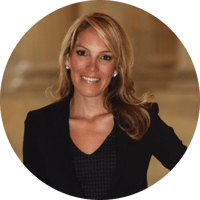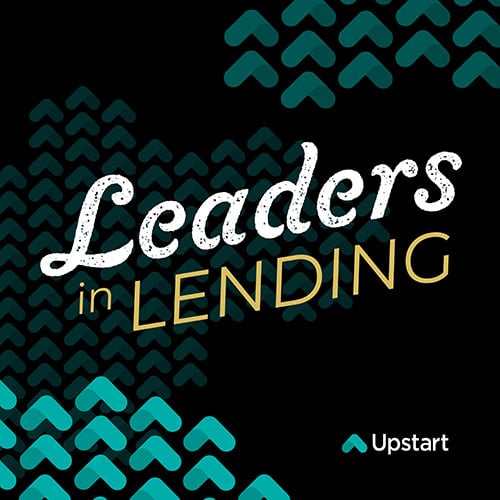Leaders in Lending | Ep. 95
CBA’s Outlook on Fraud, Branches, and Digitization
In this episode of Leaders in Lending, Lindsey Johnson, President and CEO of the Consumer Bankers Association, shares the changes and accomplishments she has made this past year and what to expect in 2023.


GUEST SPEAKER
Lindsey Johnson
Lindsey Johnson is President and CEO of the Consumer Bankers Association (CBA), which represents the retail banking industry, including the nation’s largest bank holding companies as well as regional and community banks. Most recently serving as President of U.S. Mortgage Insurers, Johnson has worked with member companies to advance the value of private mortgage insurance to borrowers and taxpayers. Johnson previously served as a Director at PwC. Prior to joining PwC, Johnson was a member of the Senate Banking Committee staff as the Republican Staff Director for the Senate Banking Committee’s National Security and International Trade and Finance (NSITF) Subcommittee, and as a Senior Policy Advisor to Senator Mark Kirk (R-Illinois). Johnson also served as Director for the Federal Home Loan Bank of Atlanta for seven years, representing the Bank in D.C. at the highest levels of government during several key legislative reforms that impacted the Bank including the Housing and Economic Recovery Act of 2008 and Dodd-Frank Act.

ABOUT
The Consumer Bankers Association
The Consumer Bankers Association (CBA) is the only member-driven trade association focused exclusively on retail banking. Whether buying a home, financing an education or launching a small business, since 1919, CBA has partnered with the nation's leading retail banks to promote sound policy, prepare the next generation of bankers and finance the dreams of consumers and small businesses. CBA's Corporate Members include the nation's largest retail banks, with 85 percent holding over $10 billion in assets. CBA's Associate Members represent the premier providers of goods and services to banks. They have 14 standing committees, subcommittees and working groups include top executives from CBA's member banks with expertise in each segment of retail banking.
Key Topics Covered
- Fighting fraud effectively
- The evolving role of the branch
- The rise of fintech in the banking industry

“It's no longer a question of digitization. People are really thinking about, 'Okay, what's next?'”

“[Fintech] partnerships are absolutely essential for these smaller and medium-sized banks.”

“The next thing on the horizon [for fraud] is the use of biometrics.”
EPISODE RECAP & SUMMARY
The investments in technology that banks and financial institutions are making today prepare consumers to manage their finances more meaningfully.
Banks are approaching technology in terms of solving problems for their consumers and transforming the way that they use their financial services providers. But where else is digital banking taking us in the future?
In this episode of Leaders in Lending, Lindsey Johnson, President and CEO of the Consumer Bankers Association, shares the changes and accomplishments she has made this past year and what to expect in 2023.
Join us as Jeff and Johnson discuss:
- Fighting fraud effectively
- The evolving role of the branch
- The rise of fintech in the banking industry
Battling targeted attacks
Johnson has set a bold agenda in her first seven months at the helm of the CBA. She’s excited about their efforts toward developing the next generation of diverse leaders and is ready to position her organization as the voice of the industry.
As a former Senior Policy Advisor for the Senate Banking Committee, she previously spent almost seven years as the President of the U.S. Mortgage Insurers organization.
Johnson is also dedicated to conquering one of the biggest challenges facing today's finance world — an ever-increasing level of fraud.
With innovation and new consumer technology comes new threat actors intent on robbing banking institutions and the unsuspecting public.
“Banks are spending billions and billions of dollars every year to educate consumers to prevent fraud, to prevent these scams,” she said. “But we’re really calling on the FCC to help us address these spoofing attacks.”
Johnson believes basic cybersecurity education for consumers is vital for ending this onslaught of fraud and online crime.
Moving the needle
The pandemic propelled consumers and businesses into a new technological world.
“Banking is one of the nation's oldest and most established institutions, but we’re thinking about financial services in very new and transformative ways,” says Johnson.
Beyond moving the needle, the industry is experiencing a cosmic shift by focusing more on solving problems for their customers, whether through offering travel programs, wealth management or financial planning tools.
“We’re anticipating customer needs and their lifetime journey in a very different way,” Johnson says.
The pace of digital transformation will only accelerate, yet neighborhood branch offices are certainly not a thing of the past.
“I think we’re going to be in this place of high-tech, high-touch for quite a while,” Lindsey says.
Changes in the traditional banking system are coming — more banks are investing in revamping their existing branches and adding ones in underserved communities.
Some organizations are adopting the ‘cafe model,’ where customers can stop by their branch and get their caffeine fix while meeting with skilled and compassionate financial partners for an individualized customer experience.
Johnson states that within the CBA, they’re talking about the evolution of talent.
This pivot means that banks will need to adapt their education programs to this new reality, enabling employees to build stronger relationships with their clients and identify the consumer’s needs even before the consumer identifies it.
Working together on driving the digital future
“Customer expectations have risen to the point that banks have to constantly focus on updating and accelerating their processes,” says Johnson.
According to Johnson, traditional banking institutions will have to partner with fintechs to stay competitive, especially small and medium-sized banks.
These partnerships will play an increasingly important role in making credit more accessible to LMI communities and expanding into the digital realm.
She sees equally important forces at play — a looming recession combined with inflation, a tight labor market and the growing influence of AI on the regulatory landscape.
CBA members are beginning to see AI and the promise of machine learning as a meaningful way to be better informed about making small business lending decisions, for example, to help minimize risk and reduce incidences of fraud.
It is crucial, however, to understand the technology behind these decisions and ensure these automated processes are free from discrimination and properly regulated.
“The goal is to extend credit access in a measured and targeted way that helps bring more people into the banking system,” Johnson said.
Johnson also forecasts an increase in biometrics and other security measures put in place by financial institutions to protect their customers better. These investments will further streamline the consumer experience and increase confidence in the industry.
Stay tuned for new episodes every week on the Leaders in Lending Podcast.





